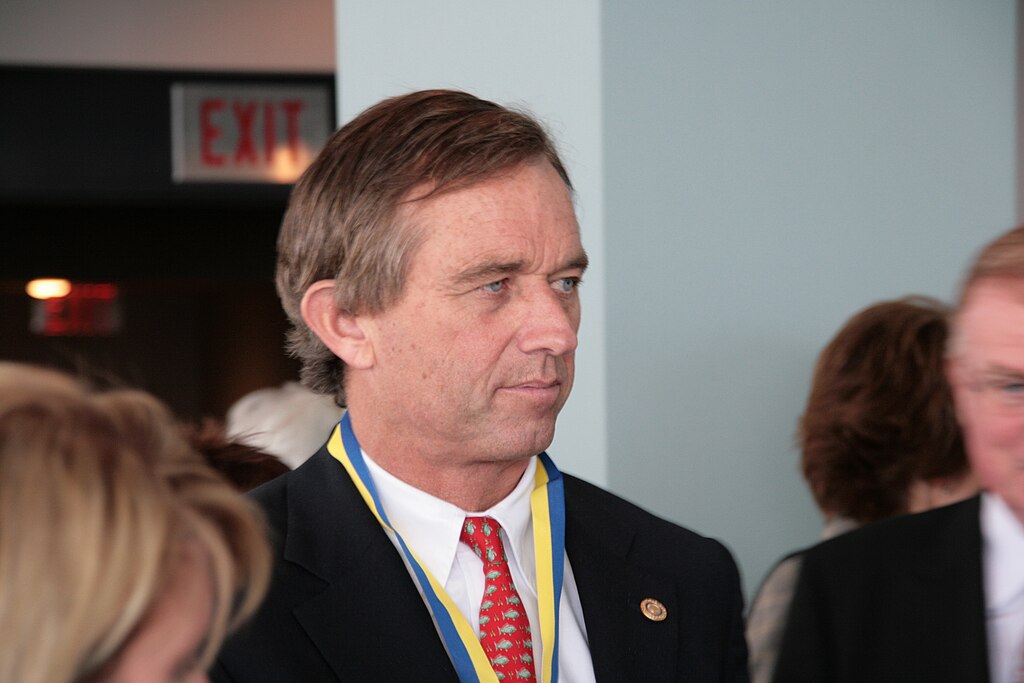
(Scypre.com) – In a move igniting sharp criticism and widespread debate, President-elect Donald Trump has nominated vaccine skeptic and former independent presidential candidate Robert F. Kennedy Jr. as his Secretary of Health and Human Services (HHS). The announcement, part of a wave of cabinet nominations on Thursday, signals Trump’s determination to reshape public health leadership as he prepares to take office.
Kennedy, commonly referred to as RFK Jr., has drawn intense scrutiny for his history of spreading misinformation about vaccines. Public health experts, including the American Public Health Association (APHA), have expressed grave concerns about his suitability for the role.
Georges C. Benjamin, Executive Director of the APHA, fiercely opposed the nomination, stating:
“He is not competent by training, management skills, temperament, or trust to have this job. He’s just absolutely the wrong guy for it.”
Benjamin underscored Kennedy’s lack of a formal health background and cited his controversial statements questioning vaccine safety and efficacy. He added that Kennedy’s leadership could pose significant risks, particularly if the country faced another pandemic.
“We’re going to advocate as loudly and as often as we can to make sure that people know what a risk he is to the public and to public health,” Benjamin concluded.
In a statement accompanying the announcement, Trump praised Kennedy’s vision for reforming the nation’s health system, pledging to combat what he called the “industrial food complex and deceptive drug companies.”
“Mr. Kennedy will restore these agencies to the traditions of Gold Standard Scientific Research and beacons of Transparency,” Trump said, adding, “Together, we will end the Chronic Disease epidemic and Make America Great and Healthy Again!”
Trump lauded Kennedy’s independence and his outspoken criticism of corporate interests in healthcare.
Kennedy, 70, hails from one of America’s most prominent Democratic families. The son of former U.S. Attorney General Robert F. Kennedy and nephew of President John F. Kennedy, RFK Jr. has long been a polarizing figure. His controversial remarks, including his unsubstantiated claim that vaccines contribute to autism, have drawn sharp rebukes from the scientific community.
According to the Centers for Disease Control and Prevention (CDC), “Many studies have looked at whether there is a relationship between vaccines and ASD [autism spectrum disorder]. To date, the studies continue to show that vaccines are not associated with ASD.”
Despite his contentious views, Kennedy’s personal story has resonated with some Americans. A former environmental lawyer, he has also spoken candidly about his battles with addiction and his desire to address the nation’s substance abuse crisis.
“We’re now seeing an epidemic of addiction, alcoholism,” Kennedy said in an interview last year, adding that he wanted to combat the growing issues of “loneliness, despair, and disassociation.”
The nomination has drawn swift condemnation from Democrats and mixed reactions from Republicans. Senator Patty Murray, a Democrat, called the choice “catastrophic” and labeled Kennedy a “fringe conspiracy theorist.”
Meanwhile, Republican Senator Susan Collins expressed reservations but remained open to a fair hearing.
“I have found some of his statements alarming,” Collins said, “but I will consider his nomination carefully during the confirmation process.”
Kennedy’s nomination was part of a broader announcement of cabinet picks, signaling Trump’s intent to reward allies and elevate high-profile figures. Among the other appointments:
Doug Burgum, North Dakota Governor, as Secretary of the Interior.
Doug Collins, former Georgia Congressman, as Secretary of Veterans’ Affairs.
Todd Blanche, Trump’s defense lawyer in his criminal trial, as Deputy Attorney General.
Jay Clayton, former SEC chair, as U.S. Attorney for the Southern District of New York.
Additionally, Trump announced a new Department of Government Efficiency, to be led by tech mogul Elon Musk. This department aims to streamline federal operations and cut bureaucratic red tape.
Trump’s selections reflect a mix of loyalty, controversy, and strategic appointments as he assembles his administration. While some picks, such as RFK Jr., have sparked outrage, others, like Elon Musk, hint at a broader restructuring of government.
As the Senate prepares for confirmation hearings, the debates surrounding these appointments are expected to dominate headlines in the weeks to come.